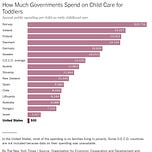Hello everyone and welcome back for this week’s edition of Chaise Lounge. And a warm welcome to our newest subscribers. You all rock! As always, please like, share, and comment liberally. And feel free to email me, too! You all are what makes this newsletter stay alive!
This week we will take a dive into the connection between menopause and Alzheimer’s disease. While this is a heavy topic, the good news is that new research is giving us a roadmap as to how to best take care of our brains and hopefully stave off dementia. But first, our news updates!
National Updates
Supreme Court changes methods in response to research
Supreme Court Justice Sonya Sotomayor reports that the Court changed the format for oral arguments partially in response to research by Tonya Jacobi proving that female justices, especially Sotomayor, were interrupted by other justices and male attorneys more than their male counterparts. Justice Sotomayor gives credit to Chief Justice Roberts for making the changes in response to the research. You may recall that Chaise Lounge reported on this research last October. You can read that article here.
California outlaws “stealthing”
If you have not heard the term before, stealthing is the removal of a condom during sexual intercourse without the partner’s consent. Of course, this can lead to unwanted pregnancy or sexually transmitted diseases and is a profound breach of trust. California passed a law outlawing the practice and allows victims to take their partners to civil court.
Female students suspended after protesting sexual assault
At Olympic High School in Mecklenburg County, NC, female student-athletes were suspended for participating in a protest against a male football player who was charged with sexual assault. He was allowed to play in the school’s football games. "Honestly, I'm just disgusted that they let a football player who has sexual assault allegations against him play with an ankle monitor," one of the suspended volleyball players who asked to not be identified told the Charlotte Observer. "But because I speak out for feeling unsafe I get punished and not allowed to play in a game." The school system has acknowledged their error and has changed the athletic code of conduct from banning students who have been “convicted of a crime” to “charged with a crime” from play.
Compared to other countries, U.S. lands in last place for child care
The New York Times published the chart below with an accompanying article outlining the ways that other countries subsidize child care. On average, other rich countries pay $14K of the expense. The U.S. pays $500.
Abortion Law Updates
Kentucky’s Cameron v. EMW Women’s Surgical Center Case
This week, the Supreme Court heard the case of Cameron v. EMW Women’s Surgical Center in which the issue is whether the Attorney General of the state can intervene in the case. The state AG, Daniel Cameron, wants to represent the state after the state’s health director declined to do so. At issue is a state law forbidding the dilation and evacuation abortion method which is the most common procedure used during second-trimester abortions. The EMW Women’s Clinic argues that the law is unconstitutional. While the case is mostly a procedural one, it could lay the groundwork for other states to outlaw the procedures.
Domestic Gag Rule Rolled Back
The Biden administration has rolled back the domestic gag rule enacted by former President Trump that prevented women’s health clinics that receive Title X funds from performing abortions or making abortion referrals. Beginning November 8, clinics will be able to tell women who want an abortion where they can obtain one. Title X funds are used for STI education and treatment, birth control, and cancer screenings, but not for abortions.
Texas’s SB 8 is back in service
Last week, Chaise Lounge reported that the Texas abortion bill had been blocked by federal judge Robert Pitman. Two days later, the 5th Circuit Court of Appeals repealed that injunction and reinstated the law until they receive the Justice Department’s response. On Monday, the DOJ sent their response and recommended that the law be blocked again. The 5th Circuit Court of Appeals is considering the case.
The Menopause-Alzheimer's Connection and What You Can Do About It

Most medical research is predicated on the default male body creating an environment where women’s health care is substandard to that of men. Add into that mix, historical attitudes toward women’s health complaints as “hysterical”, and you have a recipe for dismissive health care for women. Maya Dusenberry’s breakthrough book Doing Harm: The Truth About How Bad Medicine and Lazy Science Leave Women Dismissed, Misdiagnosed, and Sick describes both the knowledge gap and the trust gap when it comes to women and doctors.
And nowhere is that more obvious than in the incidence of Alzheimer’s disease in women and the lack of neuroscience research into the causes. Women develop Alzheimer’s at a rate of two to one compare to men. One would think that with that lopsided statistic, research dollars would be expedited to understand the sex differences in the development of Alzheimer’s on a national level. But it took a researcher from a clinic specializing in women’s medicine to make some important discoveries.
Neuroscientist Lisa Mosconi, Ph.D., Director of the Weill Cornell Women’s Brain Initiative, and author of last year’s book, “The XX Brain”, researches the connection between menopause and Alzheimer’s disease. Using the knowledge gained from her research and that of others, she advises women on how to take care of their brains.
Menopause symptoms are neurologically-based
Dr. Mosconi’s cutting-edge research has begun to unravel the reasons why so many women feel a bit like they are losing it as they transition into menopause. Her clear explanations of what happens neurologically help women understand why we have hot flashes, difficulty sleeping, and brain fog. Most importantly, her work has shown that there are some preventive steps we can take to reduce the risk of developing Alzheimer’s, and the sooner we start, the better the outcome.
In her excellent TEDTalk on the topic, Dr. Mosconi explains that while there is no gender to a human brain, the way that hormones interact with the brain can cause different outcomes. As men age, their testosterone levels decrease in a very slow manner over their lifetime. But in women, their estrogen levels drop precipitously over just a few years during menopause wreaking havoc with several parts of the brain.
Lack of estrogen drives menopause symptoms
According to Dr. Mosconi, the menopause symptoms that 80% of women experience are actually neurological in nature. The brain and the ovaries are constantly “talking” to one another through the neuroendocrine system. Estrogen is involved in brain function. Changes in the hypothalamus, amygdala, hippocampus and brain stem due to lack of estrogen causes hot flashes, sleep issues, and brain fog (see chart below). These changes lead to decreased energy in the brain which creates the development of amyloid plaques, the biggest risk factor for developing Alzheimer’s disease.
Brain energy decreases during menopause
Dr. Mosconi and her colleagues performed PET scans of the brains of women before and after going through menopause. Independent of what age the women entered menopause, the scans showed a decrease in brain energy after menopause. While this is all normal for a woman’s brain, it can lead to excess development of amyloid plaques.
Source: https://www.ncbi.nlm.nih.gov/pmc/articles/PMC6198681/
What can we do to improve our brains?
Amyloid plaques can increase in women up to twenty percent post-menopause, a major risk factor for developing Alzheimer’s. There are two pieces of good news, though. First, when the cognitive performance of men and women during menopause is compared, there is no actual cognitive difference. As Dr. Mosconi says, “We may be tired, but we are just as sharp.” Second, Dr. Mosconi has some suggestions for ways to protect the female brain.
The first thing that might come to mind would be hormone replacement therapy(HRT). If dropping estrogen levels are the cause, then replacing them should fix the problem, right? The research is not clear as to whether HRT is helpful. And because so many women cannot take or are not interested in HRT, it is not an answer, at least not at this point.
Another thought might be to get tested for a genetic predisposition to Alzheimer’s disease for those who have it in their families. Unfortunately, the testing does not necessarily give you an exact answer. In a recent New York Times article, Mark Mapstone, a professor of neurology at the University of California, Irvine said,
Having the APOE4 allele does not mean you’ll get Alzheimer’s disease. Plenty of people with Alzheimer’s don’t have the allele. And conversely, plenty of people with the allele never develop Alzheimer’s.
Dr. Mosconi recommends that women begin eating a Mediterranean diet prior to menopause and beyond. She recommends this diet because the foods recommended are full of phytoestrogens which act as energy in your brain. The diet also delivers benefits for cognitive development, heart health, depression, cancer, and stroke. The foods that she especially recommends are sesame seeds, flax seeds, chickpeas, all sorts of legumes, many fruits like apricots, strawberries, vegetables like yams, carrots, kale, celery, and soy products.
Dr. Mosconi cites a very large study called the FINGER study from Finland that showed a 150% improvement in executive function in those patients who changed their diets, exercised regularly (even just walking), and were kept intellectually stimulated. Finally, she emphasizes stress reduction as one more key to brain health. Increases in cortisol, the hormone expressed when stress levels are high, actually decreases the level of estrogen in the body in a symbiotic relationship.
A recent study in the Lancet tells us that physical inactivity, hearing loss, depression, obesity, hypertension, smoking, social isolation, diabetes, and low education levels raise the risk of dementia. All of these factors are modifiable. So the good news is that there are many things that we can do to protect our brain health and stave off dementia.
Dr. Mosconi’s work is trailblazing in its nature. We have had so little research into the brains of menopausal women. As she says,
Changes in the way we understand the female brain changes the way we care for the brain, and the way we frame women’s health. The more women demand this information, the sooner we will be able to break the taboos around menopause and come up with solutions that actually work, not only for Alzheimer’s but for women’s brain health.
Just for fun
My dog, Kutya, says to take time to stop and let the wind blow over you and relax. It will keep your cortisol levels low!


















Share this post